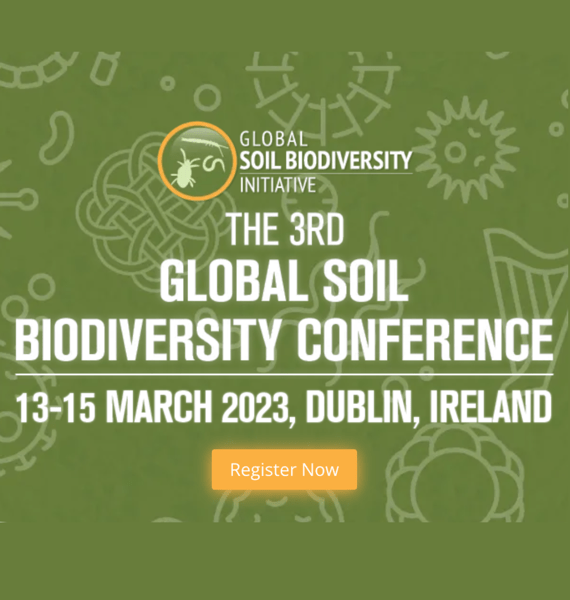The 3rd Global Soil Biodiversity Conference
Home | Events | Researchers | The 3rd Global Soil Biodiversity Conference

Dublin, Ireland, 13–15 March 2023.
The 3rd Global Soil Biodiversity Conference will take place in Dublin in March.
The Global Soil Biodiversity Initiative, launched in 2011, is a major stakeholder in the development of soil biodiversity policy, and the accelerating scientific knowledge underpinning the vast biological diversity contained in terrestrial soils worldwide. Among its various activities, the GSBI launched the Conference held in Dijon (France, 2014) and more recently in Nanjing (China, 2017).
The 3rd Conference, to be held in Dublin (Ireland) in 2023, will expand on previous GSBI conferences and convene the world’s leading experts in this interdisciplinary field of soil biodiversity science to present and discuss recent advances addressing the urgency of meeting global challenges which link to human, animal and plant health and a more sustainable world. The conference will be the top meeting for all scientists, technologists, experimentalists and modellers, students and practitioners working on any aspects of soil biodiversity science and its linkages to the functioning of our global biosphere. The conference will provide the latest updates on soil biodiversity research and knowledge for scientists, policy makers, regulators, environmental agencies, conservationists, land user managers and other stakeholders in the sustainable use and conservation of soil biodiversity.
For further information on the GSBI’s activities, please see their website.